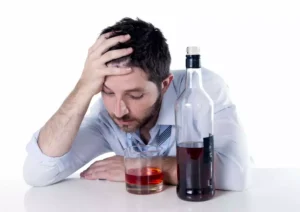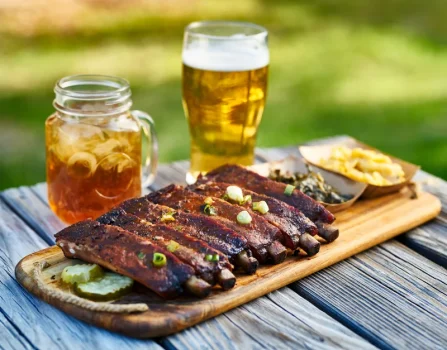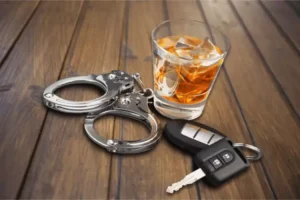
That said, if you want to cut back, there are definitely benefits. And there are some challenges as well (but hey, even Keith Richards has seriously cut back on drinking, and you can, too). So maybe by now, you’re thinking about taking a break from drinking for a bit, but need to know exactly what that break can do for you.
- So, it’s not that sober living will give you a super-powered immune system—it’s just that it will get you back to your baseline, i.e. the efficient immune system you should have had before you started drinking.
- “Taking a break from drinking alcohol—even if it’s just for a couple of weeks—is a good idea, especially if you’re regularly consuming more than the recommended daily limit,” Dr. Raskin says.
- The communal aspect of the Dry January challenge might make it easier, too, particularly if you have friends or family members who want to join you in abstaining from alcohol for 31 days.
- Neurotransmitters can rebound beyond their usual activity levels, which can leave you feeling anxious and irritable.
- The more you drink, the more likely it is that you’ll damage parts of your heart that you really, really need.
Be a supportive friend
On a recent Friday night, Rob Zaleski and Kim Daniel walk into Marshall’s bar in Austin. They’re going without alcohol for 30 days, they explain, and are documenting their experience in a podcast and on Instagram at #boozelessATX. On a Saturday night, people are starting to pack into a popular bar called Harvard & Stone in a hip Los Angeles neighborhood. Rachel Kazez, a licensed clinical social worker and therapist with All Along, says to begin with some basic questions to get a little perspective. I order a mocktail when I meet people for drinks because it feels good to sip a drink that has an air of indulgence to it.
Taking a Break from Alcohol Can be Good for Your Health

There are certain brain chemicals called excitatory neurotransmitters that will stop doing their job when you drink, which can make you feel sleepy and sedated. Excessive drinking can lead to the build-up of toxic, highly how to take a break from drinking cancer-causing (carcinogenic) compounds that contribute to inflammation in your body, especially in your liver. Talking with friends about your decision to drink less can help you stay accountable to your goal.
Weight Management
That’s why Mehta recommends being kind to yourself and thinking about this as an experiment. Cocktail and chat time had ended and we sat down for dinner with a corporate vice president. I was in my early 40s, that career stage when you’re eager to leave a good impression. Brigid Clancy works as a contractor to a private alcohol and other drug consultancy. “You know, alcohol is the only drug in which you have to give a reason for why you don’t do it,” he says.

Think about the common risks of drinking alcohol
The evidence shows that trying out or “experimenting” with change even for a relatively short period of time (as many “Dry January” participants experienced) can yield significant benefits and “jump-start” more lasting change. Trouble sleeping is common after you stop drinking, especially early in recovery. But the longer you abstain from alcohol and work on your sleep hygiene, the more improvements https://ecosoberhouse.com/ in your sleep you’ll see over time. “These improvements can be observed not only in people who abstain from alcohol but in people who reduce heavy drinking,” Volpicelli says. When you quit drinking, you’ll probably notice that the colds, flu, and other illnesses you always seem to catch happen less often. When you do get sick, you’ll probably feel like you recover more easily when you’re sober.

Just note that you might overdo it if you start drinking again.
- The National Institute on Alcoholism and Alcohol Abuse defines binge drinking as a pattern of alcohol consumption that brings blood alcohol concentration (BAC) levels to 0.08 g/dLi in a short period of time (about 2 hours).
- Social media can also be a great place to start making sober friends by following hashtags such as #soberlife, #soberissexy, and #sobercurious.
- The insights gained while taking a break from alcohol can help guide better choices moving forward.
- Your liver has enzymes that work like special tools to help metabolize (break down) different toxins that enter your body, such as alcohol.
“We’re finding that we can fill our days,” Daniel says, “but sometimes the nights are hard.” Then they discovered Sans Bar. “All my drinking was really centered around community and wanting that connection so badly with other people,” he says. “Not everybody wants to get wasted when they go to the bar,” says Forte. Sometimes, being there is just about wanting to be social and fit in. Another social club member, Kathy Kuzniar, says she used to obsess over whether there was enough wine in the house. She says she feels calmer since she became sober, and she has lost 30 pounds.

- And there are some challenges as well (but hey, even Keith Richards has seriously cut back on drinking, and you can, too).
- Waking up without the fatigue, malaise and other common symptoms of hangovers could greatly improve one’s quality of life.
According to the National Cancer Institute, alcohol use has been linked to an increased risk for cancers of the mouth, liver, colon, and rectum. Another review of 27 studies found that while alcohol may help people fall asleep more quickly and deeply at first, it seriously screws with sleep quality after that initial restful period. This can be especially important if you experience withdrawal symptoms upon trying to quit, says Stewart. “It is also important to notice what happens to your emotions when you stop alcohol use. If you have been using alcohol to manage difficult or uncomfortable emotions or experiences, those emotions will intensify shortly after you quit using. In these cases, it is important to seek professional help to address and resolve those difficulties,” she adds.
- Generally, I feel more secure and happier without alcohol — largely because I recall that my times with alcohol weren’t always merry, and I feel my health has improved without it.
- When you stop drinking, it can also reverse the negative effects alcohol has had on your cognitive functions like problem-solving, memory, and attention.
- They’re sipping handcrafted mocktails, with names like Baby’s First Bourbon and Honey Dew Collins, featuring nonalcoholic distilled spirits.
- She has previously been awarded funding by Australian and state governments, NHMRC and other bodies for evaluation and research into drug prevention and treatment.
- He became a substance abuse counselor to help others but found that being in recovery was often really lonely.
Mental Health Benefits of Quitting Alcohol
It’s important that you work with your doctor when you’re ready to stop drinking rather than trying to do it alone. If you want to reduce your alcohol use and stop drinking, there is help and support for you. Behavioral interventions, medications, and social support can all play a role in your alcohol recovery.
Reduced Heart Disease Risk
Over the past 12 years, Marshall has seen a lot of changes in the way people view sobriety. Back when he was getting sober, you either drank — or you didn’t, he says. Chris Marshall of Austin, Texas, has been sober for the past 12 years.


